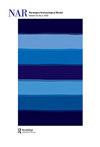Fires and Seeds. Considerations for a decolonized Mesolithic archaeology
IF 1.1
3区 历史学
0 ARCHAEOLOGY
引用次数: 0
Abstract
The world is on fire, and European archaeologists are starting to feel the heat. With the war in the Ukraine, the rise of polarizing politics and global authoritarianism, and the climate emergency pushing us closer to the tipping point of planetary destruction, we cannot help but to feel deeply affected. In the face of these challenges, we want to act, but what we do as archaeologists can sometimes seem trivial and insignificant. Even worse, a critical examination of our disciplinary history can lead us to conclude that we are complicit in the injustices and even partially responsible for the current situation. The chasm between the social, cultural, and environmental crisis of our time, and the academy was masterfully depicted by Ryan Cecil Jobson in his essay ‘The case for Letting Anthropology Burn: Sociocultural Anthropology in 2019’ (Jobson 2020) written in the aftermath of the 2019 AAA meetings in San Jose, California, which saw hundreds of anthropologists fly in to socialize and discuss issues like inequality and climate change in a city covered by the smoke from raging wildfires. The irony was not lost on anybody. In the essay Jobson framed the situation as an epistemic crisis of the discipline and called for it to abandon its liberal suppositions (Jobson 2020, p. 261). The response is characteristic for a trend in academia today to respond with socially conscious scholarship and attempts at tearing down what Jobson calls ‘the fictive separation’ of ‘bourgeois academic work from the material histories of other fields that took shape alongside the formalization of the human sciences’ (Jobson 2020, p. 261). In this discourse we often encounter an amalgam of intellectual thought that combines anti-racism, feminism, anti-capitalism, and post-colonial criticism, with calls to decolonize institutions of power. It is in this context that I view the piece by Warren and Elliot calling for us to decolonize the Mesolithic, and I welcome it. At the same time, I am also wary of the critique framed by Olúfémi O. Táíwò as ‘elite capture,’ referring to the phenomenon of how movements to decolonize, including discourses, resources and processes intended to empower the marginalized, often become appropriated by the privileged (Táíwò 2022). I share the authors’ commitment to a socially conscious archaeology. I agree that archaeology is political and should be engaged in the contemporary world, and I am pleased to see this issue explicitly brought into focus for the Mesolithic, which often has remained on the margins of these debates. I am disappointed that several of our colleagues felt strongly enough to reach out to express their discontent and discourage continued work in this area. I wish we had come farther – but at least this seems to have struck a nerve that I think we should continue to put pressure on. That being said, and in the spirit of exploratory火和种子。非殖民化的中石器时代考古学的思考
世界正处于火海之中,欧洲的考古学家们也开始感受到了热度。乌克兰的战争、两极分化的政治和全球威权主义的兴起,以及气候紧急情况将我们推向了地球毁灭的临界点,我们不禁感到深受影响。面对这些挑战,我们想要采取行动,但作为考古学家,我们所做的事情有时似乎微不足道。更糟糕的是,对我们学科历史的批判性审视可能会让我们得出这样的结论:我们是不公正的同谋,甚至对当前的情况负有部分责任。瑞安·塞西尔·约翰逊(Ryan Cecil johnson)在他的文章《让人类学燃烧的案例:2019年的社会文化人类学》(Jobson 2020)中巧妙地描绘了我们这个时代的社会、文化和环境危机与学术界之间的鸿沟。这篇文章是在2019年加州圣何塞AAA会议之后写的。在圣何塞,数百名人类学家飞到一个被熊熊大火的烟雾笼罩的城市,参加社交活动,讨论不平等和气候变化等问题。每个人都明白其中的讽刺意味。在这篇文章中,约翰逊将这种情况描述为该学科的认知危机,并呼吁它放弃其自由主义的假设(Jobson 2020, p. 261)。这种回应是当今学术界一种趋势的特征,即以具有社会意识的学术作为回应,并试图摧毁约翰逊所说的“资产阶级学术工作与其他领域的物质历史的实际分离”,这些领域与人文科学的形式化同时形成”(Jobson 2020,第261页)。在这种论述中,我们经常遇到一种知识分子思想的混合体,它结合了反种族主义、女权主义、反资本主义和后殖民批评,并呼吁权力机构去殖民化。正是在这种背景下,我看待沃伦和艾略特呼吁我们去殖民中石器时代的文章,我对此表示欢迎。与此同时,我也对Olúfémi O. Táíwò所提出的“精英捕获”的批评持谨慎态度,该批评指的是非殖民化运动,包括旨在赋予边缘化群体权力的话语、资源和过程,如何经常被特权阶层占用的现象(Táíwò 2022)。我赞同两位作者对社会意识考古学的承诺。我同意考古学是政治性的,应该参与当代世界,我很高兴看到这个问题明确地成为中石器时代的焦点,它经常处于这些辩论的边缘。我感到失望的是,我们的一些同事强烈地表达了他们的不满,并劝阻在这一领域继续开展工作。我希望我们能走得更远——但至少这似乎触动了人们的神经,我认为我们应该继续施加压力。也就是说,本着探索的精神
本文章由计算机程序翻译,如有差异,请以英文原文为准。
求助全文
约1分钟内获得全文
求助全文
来源期刊

Norwegian Archaeological Review
ARCHAEOLOGY-
CiteScore
2.10
自引率
0.00%
发文量
13
期刊介绍:
Norwegian Archaeological Review published since 1968, aims to be an interface between archaeological research in the Nordic countries and global archaeological trends, a meeting ground for current discussion of theoretical and methodical problems on an international scientific level. The main focus is on the European area, but discussions based upon results from other parts of the world are also welcomed. The comments of specialists, along with the author"s reply, are given as an addendum to selected articles. The Journal is also receptive to uninvited opinions and comments on a wider scope of archaeological themes, e.g. articles in Norwegian Archaeological Review or other journals, monographies, conferences.
 求助内容:
求助内容: 应助结果提醒方式:
应助结果提醒方式:


